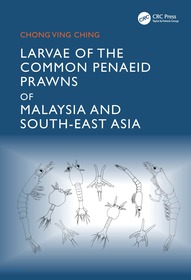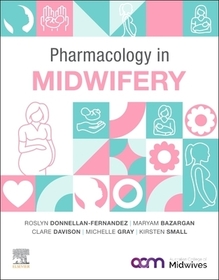
Larvae of the Common Penaeid Prawns of Malaysia and South-East Asia
-
10% KEDVEZMÉNY?
- A kedvezmény csak az 'Értesítés a kedvenc témákról' hírlevelünk címzettjeinek rendeléseire érvényes.
- Kiadói listaár GBP 145.00
-
69 273 Ft (65 975 Ft + 5% áfa)
Az ár azért becsült, mert a rendelés pillanatában nem lehet pontosan tudni, hogy a beérkezéskor milyen lesz a forint árfolyama az adott termék eredeti devizájához képest. Ha a forint romlana, kissé többet, ha javulna, kissé kevesebbet kell majd fizetnie.
- Kedvezmény(ek) 10% (cc. 6 927 Ft off)
- Kedvezményes ár 62 346 Ft (59 378 Ft + 5% áfa)
Iratkozzon fel most és részesüljön kedvezőbb árainkból!
Feliratkozom
69 273 Ft

Beszerezhetőség
Még nem jelent meg, de rendelhető. A megjelenéstől számított néhány héten belül megérkezik.
Why don't you give exact delivery time?
A beszerzés időigényét az eddigi tapasztalatokra alapozva adjuk meg. Azért becsült, mert a terméket külföldről hozzuk be, így a kiadó kiszolgálásának pillanatnyi gyorsaságától is függ. A megadottnál gyorsabb és lassabb szállítás is elképzelhető, de mindent megteszünk, hogy Ön a lehető leghamarabb jusson hozzá a termékhez.
A termék adatai:
- Kiadás sorszáma 1
- Kiadó CRC Press
- Megjelenés dátuma 2025. november 18.
- ISBN 9781041102267
- Kötéstípus Keménykötés
- Terjedelem250 oldal
- Méret 254x178 mm
- Nyelv angol
- Illusztrációk 113 Illustrations, black & white; 10 Illustrations, color; 10 Halftones, color; 113 Line drawings, black & white; 25 Tables, black & white 700
Kategóriák
Rövid leírás:
This book details the full larval series of 10 common, economically important species of penaeid prawn in five genera, including Metapenaeus, Metapenaeopsis, Parapenaeopsis, Penaeus and Trachysalambria. Four Parapenaeopsis species are documented for the first time. A synthesis of larval development across the genera is provided.
TöbbHosszú leírás:
This book describes in detail the full larval series of ten common, economically important species of penaeid prawn in five genera, including Metapenaeus, Metapenaeopsis, Parapenaeopsis, Penaeus and Trachysalambria. Four Parapenaeopsis species are documented here for the first time. A synthesis of larval development across the five genera is provided, with an advanced hypothesis of four developmental pathways. Showcasing 105 plates of accurate, non-stylized, realistic drawings of penaeid larvae cultured in the laboratory, Larvae of the Common Penaeid Prawns of Malaysia and South-East Asia describes extensive and intensive larval diagnoses and staging and taxonomic treatment for the generic and specific identification of the nauplius, protozoea, mysis and first post-larva, including those of other described species in the region.
The new classification key is the first for the region to consider every larval stage. Larviculture methods of the different species in a laboratory setting are also provided as a supplementary resource. To accompany the book, the author has created a semi-automated species/genus identification app for Android smartphones based on larval morphometrics.
This text is an essential buy for institutional repositories, libraries, universities and fisheries research institutes, and those interested in penaeid and crustacean biology, shrimp aquaculture, fisheries, zooplankton and larval ecology, and numerical taxonomy. It will be a useful text and guide for researchers, students, technicians, culturists and managers working in universities, fisheries and other research institutes/agencies, consultancies and the aquaculture industry.
TöbbTartalomjegyzék:
Dedication Contents Preface Chapters Introduction 1.1 Concepts of larval development 1.2 The larval stages 1.3 Larval morphology 1.4 Larval descriptions 1.5 Aim Measurements and Notations 2.1 Culture and sampling 2.2 Observation and measurement 2.3 Staining and dissection 2.4 Body measurements 2.5 Definitions and notations 2.6 Species nomenclature Development and Morphology of Penaeid Larvae 3.1 Penaeid eggs 3.2 Duration of embryony and larval stages 3.3 Larval morphology Genus Parapenaeopsis (Alcock, 1901) Parapenaeopsis hardwickii (Miers,1878) Parapenaeopsis hungerfordi Alcock, 1905 Parapenaeopsis maxillipedo Alcock, 1905 Parapenaeopsis sculptilis (Heller, 1862) Genus Trachysalambria Burkenroad, 1934 Trachysalambria malaiana (Balss, 1933) Genus Metapenaeus Wood-Mason, 1891 Metapenaeus affinis (H. Milne Edwards, 1837) Metapenaeus brevicornis (H. Milne Edwards, 1837) Genus Metapenaeopsis Bouvier, 1905 Metapenaeopsis stridulans (Alcock, 1905) Genus Penaeus Fabricius, 1798 Penaeus (Fenneropenaeus) indicus H. Milne Edwards, 1837 Penaeus (Fenneropenaeus) merguiensis De Man, 18883.4 Synthesis 3.5 Hypothesized pathways of larval development 3.6 Update of species with full larval descriptions Diagnoses and Keys to Stage, Genus and Species 4.1 Introduction 4.2 Comparative body structures, setation and spination 4.3 Larval keys to the common genera and species of penaeid prawns in Malaysian and South-East Asian waters Key NAUPLIUS Key PROTOZOEA Key MYSIS-FIRST POSTLARVA Semi-automated Identification of Larvae Using a Smartphone 5.1 Introduction 5.2 Larval characters to measure 5.3 The classification procedure 5.4 Tips on morphometric measurements of preserved larvae 5.5 About VG_Nauplius 5.6 Sample data for testing VG_Nauplius 5.7 Limitations References Glossary Supplementary I. Photo-plates of Adult Prawns II. Larval Guide Sheets Explanations to the illustrations of prawn larvae Illustration Figures Parapenaeopsis P. hardwickii (Figs. II-1 to II-11) P. hungerfordi (Figs. II-12 to II-22) P. maxillipedo (Figs. II-23 to II-33) P. sculptilis (Figs. II-34 to II-44) Trachysalambria T. malaiana (Figs. II-45 to II-54) Metapenaeus M. affinis (Figs. II-55 to II-64) M. brevicornis (Figs. II-65 to II-74) Metapenaeopsis M. stridulans (Figs. II-75 to II-84) Penaeus (Fenneropenaeus) P. indicus (Figs. II-85 to II-93) P. merguiensis (Figs. II-94 to II-102) Myses from Plankton (Figs. II-103 to II-105) III. Larviculture Methods IV. VG_Nauplius Installation
Több









